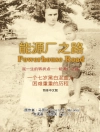More than any other male movie star, the refined Clifton Webb (1889-1966) caused the moviegoing public to change its image of a leading man. In a day when leading men were supposed to be strong, virile, and brave, Clifton Webb projected an image of flip, acerbic arrogance. He was able to play everything from a decadent columnist (
Laura) to a fertile father (
Cheaper by the Dozen and
The Remarkable Mr. Pennypacker), delivering lines in an urbanely clipped, acidly dry manner with impeccable timing.
Long before his film career began, Webb was a child actor and later a suavely effete song-and-dance man in numerous Broadway musicals and revues. The turning point in his career came in 1941 when his good friend Noël Coward cast him in
Blithe Spirit. Director Otto Preminger saw Webb’s performance and cast him in
Laura in 1944.
Webb began to write his autobiography, but he said that he eventually had gotten “bogged down” in the process. However, he did complete six chapters and left a hefty collection of notes that he intended to use in the proposed book. His writing is as witty and sophisticated as his onscreen persona. Those six chapters, information and voluminous notes, and personal research by coauthor David L. Smith provide an intimate view of an amazingly talented man’s life and times.
Mengenai Pengarang
David L. Smith (1929-2022) was professor emeritus at Ball State University in Muncie, Indiana. Prior to his academic career, he labored a number of years in the Indianapolis television market as a producer/director, production manager, and program manager. He created, wrote, and hosted a weekly thematic movie series entitled When Movies Were Movies, which had a very successful run of ten years. He also served as executive producer for several nationally syndicated television programs. And, his writings about the movie industry were widely published.












